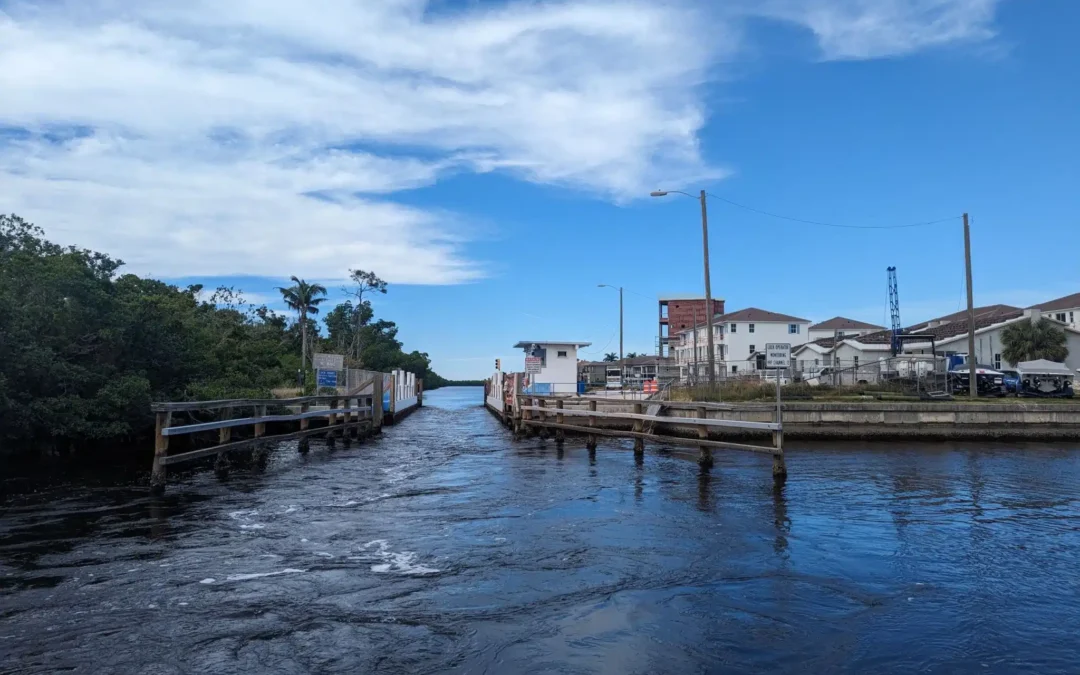The hearing to remove the Chiquita Lock in Cape Coral resumed on Dec. 18.
The hearing was continued after extensive questioning of experts concerning the water pollution generated by Cape Coral ran longer than expected. Petitioners also pointed out that Cape Coral has long held a permit to update the lock with improvements that would benefit wildlife, boaters, and water quality.
About the Chiquita Lock Case
The Chiquita Lock in Cape Coral helps send the city’s (often polluted) canal water through mangrove wetlands instead of directly into the Caloosahatchee. Learn more >>The City of Cape Coral has wanted to remove the lock entirely rather than fix and update it for improvements that would benefit both boaters and wildlife. In August, SCCF and other nonprofits who had joined together to oppose the lock’s removal unfortunately needed to withdraw as petitioners from the legal challenge, but we have continued to support keeping the lock in place.
Additional petitioners were granted permission to continue their case against the lock removal, and the hearing began Nov. 29, 2023, before being postponed pending the presentation of rebuttal testimony from Cape Coral and the Florida Department of Environmental Protection.
Petitioners in the trial support a compromise to removing the dysfunctional Chiquita Lock, which is to construct a high-speed two-way lock. In 2006-07, Cape Coral actually applied for and received a permit to replace the Chiquita Lock with a dual lock system. The city extended the permit an additional five years; however, the dual lock system was never built. In 2022, the city produced an estimate of the cost of building the new lock system at $30,933,968.
A review of the City of Cape Coral’s income from property taxes revealed that in 2018, the city realized $86 million from property taxes. The city anticipates receiving $132 million from property taxes in 2024. At the end of most budget years in the past decade, the city has generally realized a surplus of $10-20 million.
Petitioners also pointed to how much water pollution Cape Coral is contributing to each year, including discharging 923,703 pounds of nitrogen in 2019. The numbers go against targets laid out in the city’s Basin Management Action Plan — a plan governed by the Florida Department of Environmental Protection to help clean up our waterways.
“The pollution in our waterways in Southwest Florida causes huge issues to visitors, residents, and wildlife by feeding harmful algal blooms and introducing toxins into our environment. Petitioners of the Chiquita Lock case are standing up for clean water by holding Cape Coral accountable for the pollution they are adding to the Caloosahatchee estuary,” said SCCF Environmental Policy Director Matt DePaolis. “I’m glad to see the expert witnesses giving a thorough explanation as to why removing the lock will be harmful to surrounding ecosystems and will have a negative impact on wildlife and our tourism-based economy. Hopefully, the evidence presented will compel a finding in support of protecting our environment.”
View Article on SCCF.org

























